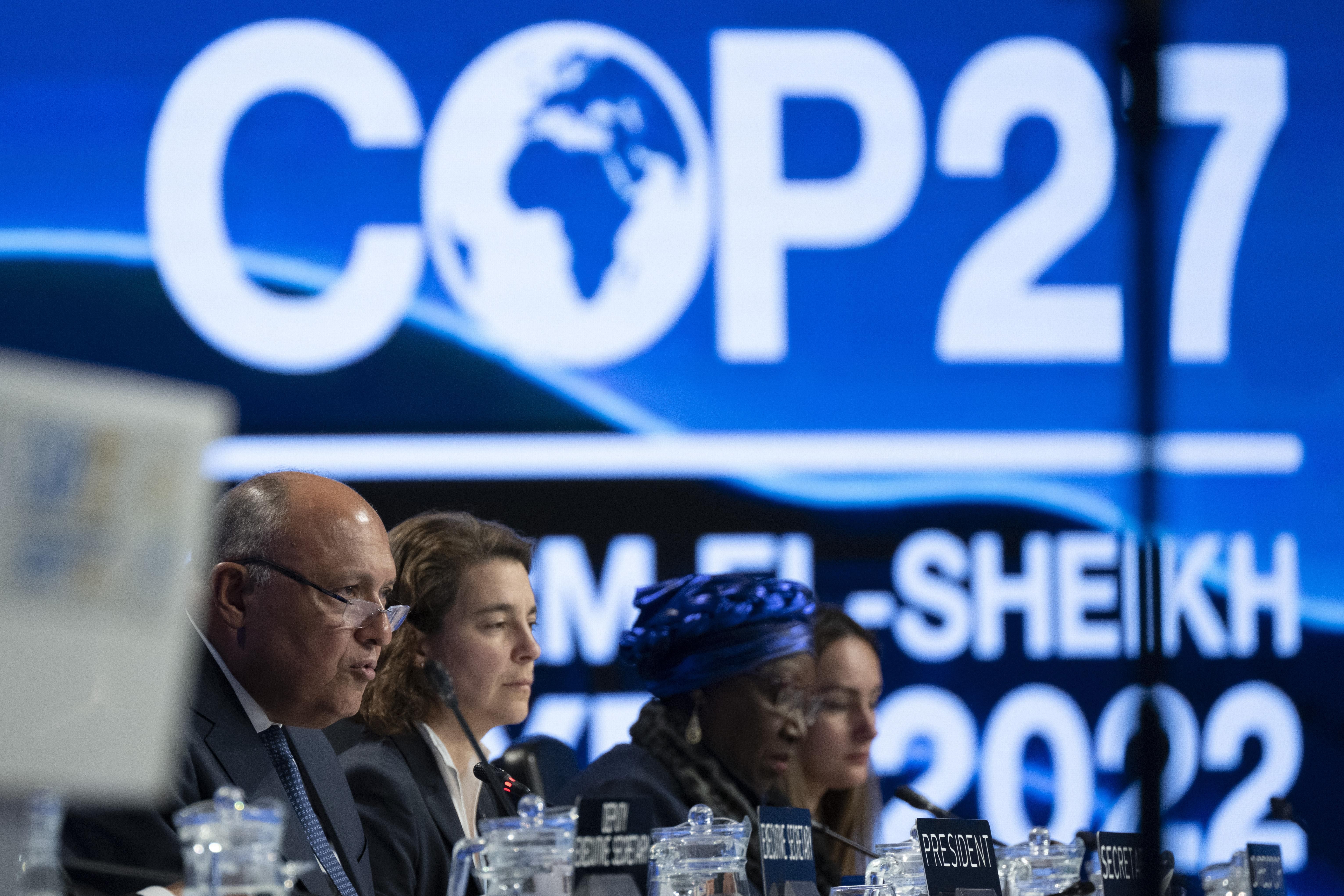COP27 delivers on reparations but fails on fossil fuels
Two days behind schedule, the COP27 climate summit in Sharm el-Sheikh, Egypt, finally wrapped up with a historic agreement on Sunday. Wealthy countries will pay poor nations for the economic damage caused by climate change. The so-called "loss and damage fund" will compensate the developing world for impacts like droughts and flooding, which rich nations led by the US had resisted for 30 years. But so far it's only a political statement of intentions with no financial commitment, so it'll be up to future COPs to work out the details. What's more, climate activists' joy over the much-awaited reparations deal was overshadowed by a lack of progress in cutting fossil fuels. Efforts to include stronger language on phasing out oil and natural gas on top of coal were rebuffed by top fossil fuel producers as well as by major guzzlers in the developing world who won't jeopardize their economic growth to embrace renewables. In other words, a victory for climate justice but a painful defeat for clean energy at a COP where expectations were low.
Get more COP27 insights from Eurasia Group analyst Franck Gbaguidi on our Instagram and YouTube channels.
Nationalist bloc might take power in Malaysia
As expected, Malaysia's general election on Saturday delivered a hung parliament without a clear winner. But there were plenty of losers. The opposition multiethnic alliance led by former PM Anwar Ibrahim won the most seats (80) but fell far short of a majority in the 222-member parliament, while the once-dominant UMNO party got its worst result ever with only 30. And perhaps the biggest upset was 97-year-old ex-PM Mahathir Mohamad losing his seat — his first election defeat in 53 years. Meanwhile, a Malay-first alliance captained by Muhyiddin Yassin, yet another former PM, overperformed with 73 seats. Muhyiddin is now favored to return to the premiership after clinching the support of two regional parties from Borneo and is wooing UMNO, but Anwar says he should have a go first. Who'll make the call? The current king under Malaysia’s unique rotating monarchy, who has the constitutional power to appoint the next PM and wants a name by Monday.
More For You
Is China’s economic model reaching a breaking point? In GZERO’s 2026 Top Risks livestream, Cliff Kupchan, Chairman of Global Macro at Eurasia Group, highlights mounting pressures on the Chinese economy.
Most Popular
2026 is a tipping point year. The biggest source of global instability won’t be China, Russia, Iran, or the ~60 conflicts burning across the planet – the most since World War II. It will be the United States.
While surgeons remain fully in control, technological advances are expanding the use of surgical robots in operating rooms. As adoption accelerates, so do the expectations for patient outcomes and surgical care. Track medical innovation trends with Bank of America Institute.
Europe enters 2026 under mounting strain as it confronts external threats, internal political pressures, and a weakening relationship with the United States. In GZERO’s 2026 Top Risks livestream, Mujtaba Rahman, Managing Director for Europe at Eurasia Group, describes a continent that is “exhausted, fatigued, weak, and vulnerable.”
